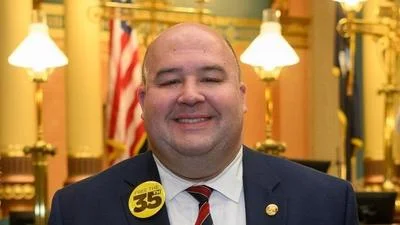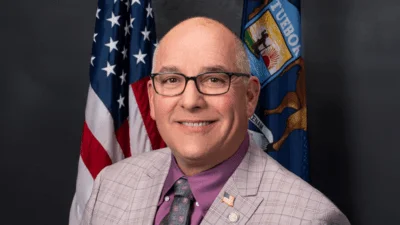Sandy K. Baruah President and Chief Executive Officer at Detroit Regional Chamber | Official website
Sandy K. Baruah President and Chief Executive Officer at Detroit Regional Chamber | Official website
A federal court in Texas has nullified the government’s ban on noncompete agreements that was scheduled to take effect on September 4.
In her ruling, Judge Ada Brown of the U.S. District Court for the Northern District of Texas stated that the federal agency had overstepped its authority when it approved the ban.
“The FTC lacks substantive rulemaking authority with respect to unfair methods of competition,” she wrote. “The role of an administrative agency is to do as told by Congress, not to do what the agency think[s] it should do.”
Ryan LLC, a tax services firm in Dallas, initiated a lawsuit to block the rule just hours after the Federal Trade Commission voted narrowly to ban noncompetes for almost all U.S. workers back in April.
Ryan’s lawsuit received support from several organizations representing a broad spectrum of American businesses, including the U.S. Chamber of Commerce, Business Roundtable, and the Texas Association of Business.
An estimated 30 million people, or one in five American workers, are bound by noncompetes. These employment agreements typically prevent workers – ranging from minimum wage earners to CEOs – from joining competing businesses or launching their own ventures.
The FTC expressed disappointment but vowed to continue efforts against noncompetes.
“We are seriously considering a potential appeal, and today’s decision does not prevent the FTC from addressing noncompetes through case-by-case enforcement actions,” wrote FTC spokesperson Victoria Graham in a statement.
Ryan argued that the ban on noncompetes would cause “serious and irreparable injuries” to its business by risking its confidential information and enabling competitors to poach valuable employees whose knowledge and training would leave with them.
“Judge Brown’s ruling preserves the economic freedom of businesses and their employees to enter into non-compete agreements,” said John Smith, Ryan's general counsel. “They play a vital role in safeguarding intellectual property and innovation, building trust within businesses, and investing in training their people.”
The FTC has long contended that noncompetes harm workers.
“The freedom to change jobs is core to economic liberty and to a competitive, thriving economy,” said FTC Chair Lina M. Khan when introducing the proposed rule. “Noncompetes block workers from freely switching jobs, depriving them of higher wages and better working conditions, and depriving businesses of a talent pool that they need to build and expand.”
According to the FTC, implementing this new rule could result in wage increases totaling nearly $300 billion per year and create 8,500 new businesses annually once workers can pursue new opportunities without fear of legal repercussions from their employers.
The proposed ban included an exception for senior executives with existing noncompete agreements under the premise that these agreements were more likely negotiated. The FTC estimates less than 1% of workers would qualify as senior executives.
Existing noncompete agreements would not need formal rescinding under this rule; however, employers would be required to inform their employees that these agreements are no longer enforceable.
###





 Alerts Sign-up
Alerts Sign-up